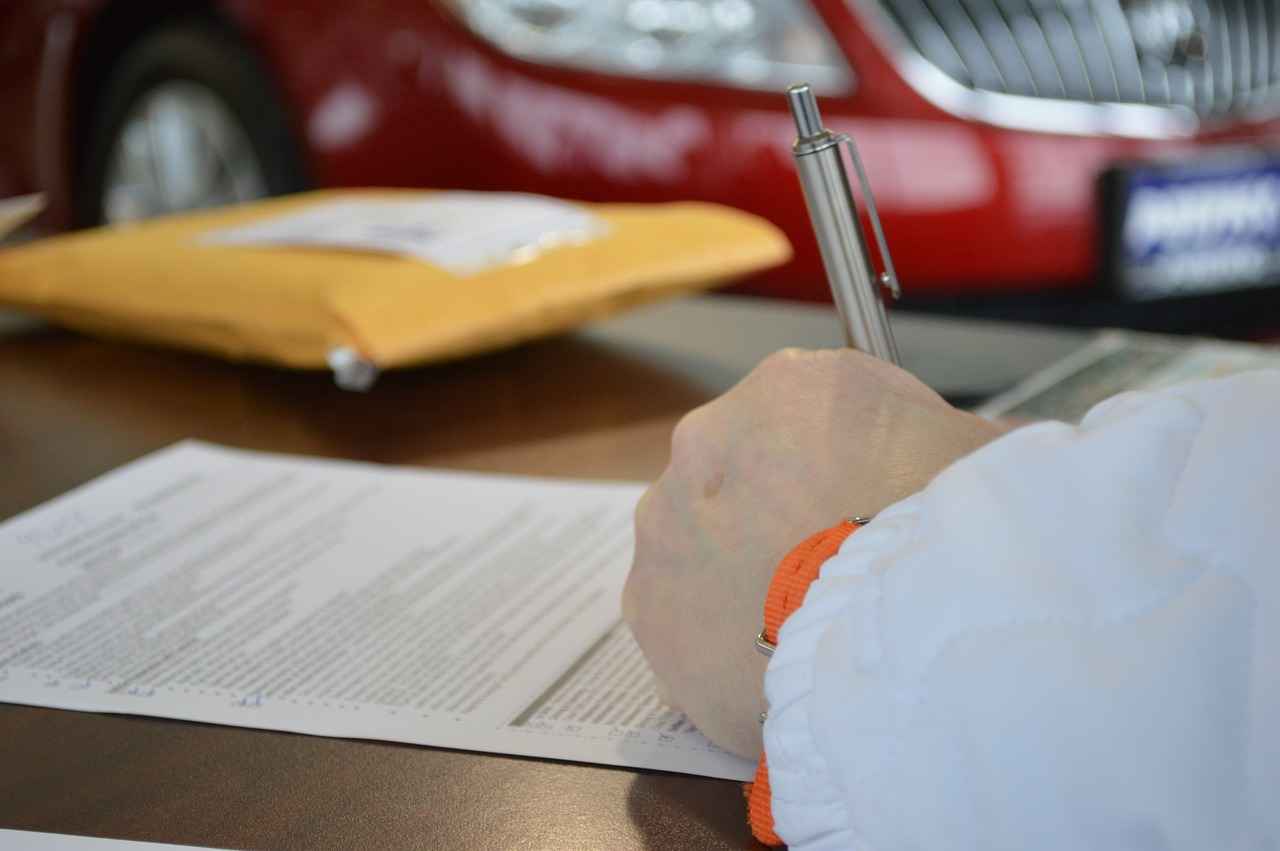This article provides essential insights and guidance on securing approval for a VA home loan in 2025, covering eligibility requirements, the application process, and tips for success.
VA home loans are a unique mortgage option designed specifically for veterans, active-duty service members, and certain members of the National Guard and Reserves. These loans offer numerous benefits, including no down payment and competitive interest rates, making homeownership more accessible for those who have served.
Eligibility Requirements for VA Loans
- To qualify for a VA home loan, applicants must meet specific service requirements, including length of service and discharge status.
- This ensures that benefits are reserved for those who have served honorably.
Understanding Service Requirements
- Active-duty members typically need to serve a minimum of 90 consecutive days during wartime or 181 days during peacetime.
- Veterans usually need to have served at least 24 months of active duty.
- Members of the Reserves may qualify after six years of service, contingent on meeting additional criteria.
Credit Score and Financial Criteria
- While the VA does not set a minimum credit score, many lenders require a score of at least 620.
- Understanding these financial criteria helps applicants prepare their finances for the loan process.
The Application Process Explained
- Navigating the VA loan application process involves several steps, from obtaining a Certificate of Eligibility (COE) to submitting financial documents.
- Applicants can obtain the COE online through the VA’s eBenefits portal or by mailing a completed VA Form 26-1880.
Choosing the Right Lender
- Selecting a VA-approved lender is vital, as they will guide you through the process and help you understand the specific terms and conditions associated with your loan.
Preparing Your Finances for a VA Loan
- Before applying, it’s important to assess your financial situation, including income, debts, and savings.
- Ensure you meet lender requirements and can manage mortgage payments effectively.
Debt-to-Income Ratio (DTI)
- Lenders typically look for a DTI ratio below 41%, which compares your monthly debt payments to your gross monthly income.
Saving for Closing Costs
- Although VA loans do not require a down payment, borrowers should prepare for closing costs, which can range from 2% to 5% of the loan amount.
Common Mistakes to Avoid
- Being aware of common pitfalls can enhance your chances of approval.
- For instance, failing to review credit reports before applying can lead to unexpected surprises that could affect your credit score.
- Many applicants also underestimate the importance of being financially prepared, including budgeting for future expenses and understanding the long-term commitment of homeownership.

Understanding VA Home Loans
VA home loans represent a distinct mortgage option tailored specifically for veterans, active-duty service members, and certain members of the National Guard and Reserves. These loans come with a range of benefits that make homeownership more accessible for those who have served in the military. One of the most significant advantages is the no down payment requirement, which alleviates the financial burden often associated with purchasing a home. Additionally, VA loans typically offer competitive interest rates, making monthly payments more manageable.
Unlike conventional loans, VA home loans do not require private mortgage insurance (PMI), which can save borrowers hundreds of dollars each month. This feature, combined with the favorable terms, makes VA loans an attractive option for eligible candidates. Furthermore, VA loans can be used to purchase a variety of property types, including single-family homes, condominiums, and even certain types of manufactured homes.
To further enhance the appeal of VA loans, they also come with flexible credit requirements. While lenders may have their own criteria, the VA does not set a strict minimum credit score, allowing more veterans to qualify. This flexibility is crucial, as many service members may have faced financial challenges during or after their service.
In addition to these benefits, VA loans offer assistance during the loan process, including support for veterans who may struggle to make payments due to financial hardship. The VA provides resources and guidance to help borrowers navigate their options and maintain their homes.
| Benefits of VA Home Loans | Description |
|---|---|
| No Down Payment | Borrowers can finance 100% of the home’s value. |
| Competitive Interest Rates | Lower rates compared to conventional loans. |
| No PMI Required | Save money on monthly payments. |
| Flexible Credit Requirements | More veterans can qualify for loans. |
Overall, VA home loans provide a unique and beneficial opportunity for those who have served in the military, helping them achieve their dream of homeownership with favorable terms and conditions.

Eligibility Requirements for VA Loans
When seeking to secure a VA home loan, understanding the eligibility requirements is essential. These loans are specifically designed to assist veterans, active-duty service members, and certain members of the National Guard and Reserves in achieving homeownership. The requirements ensure that the benefits are allocated to those who have served their country with honor.
To qualify for a VA home loan, applicants must meet specific service requirements. These requirements vary based on the length of service and discharge status, ensuring that only those who have served honorably can access these benefits.
- Active-Duty Service Members: Generally, active-duty members must complete a minimum of 90 consecutive days of service during wartime or 181 days during peacetime to be eligible for VA loan benefits.
- Veterans: Veterans typically need to have served for at least 24 months of active duty. However, those who were discharged due to service-related injuries may qualify with less time served.
- Members of the Reserves: Reservists may be eligible for a VA loan after completing six years of service, provided they meet additional criteria set by the VA.
The type of discharge received also plays a crucial role in determining eligibility. To qualify for a VA home loan, applicants must have an honorable discharge. Discharges classified as general, other than honorable, dishonorable, or bad conduct may disqualify an applicant from receiving VA loan benefits.
It is imperative for applicants to fully comprehend these eligibility criteria not only to ensure they meet the requirements but also to prepare for the application process. By understanding these guidelines, potential borrowers can better navigate their options and take the necessary steps toward homeownership.
Service Requirements
Understanding the for VA home loans is essential for veterans and active-duty service members seeking to leverage the benefits offered by the Department of Veterans Affairs. These requirements play a pivotal role in determining eligibility for the program, as they are based on the duration and type of military service, which can differ significantly across various branches of the armed forces.
To qualify for a VA loan, applicants must provide proof of their military service, which includes meeting specific criteria set forth by the VA. This includes a minimum period of service that varies depending on whether the individual served during wartime or peacetime. For instance, active-duty members typically need to have served:
- 90 consecutive days during wartime
- 181 days during peacetime
Veterans, on the other hand, are generally required to have completed at least 24 months of active duty to be eligible. Furthermore, members of the National Guard and Reserves may qualify after serving a minimum of six years, provided they meet additional conditions, such as being called to active duty. This highlights the importance of understanding not only the length of service but also the specific circumstances surrounding it.
It is also crucial for applicants to be aware of their discharge status, as those with dishonorable discharges may not be eligible for VA loan benefits. This stipulation ensures that the program remains accessible to those who have served honorably and contributed positively to the military.
In summary, comprehending the intricacies of service requirements is vital for potential borrowers. By ensuring that they meet the necessary criteria, veterans and active-duty service members can navigate the application process more effectively and secure the financial assistance they deserve.
Active-Duty Service Members
Active-duty service members play a crucial role in defending the nation, and their commitment is recognized through various benefits, including VA home loans. To qualify for these loans, active-duty members must meet specific service duration requirements, which are designed to ensure that only those who have dedicated significant time to military service can access these valuable benefits.
Generally, active-duty members are required to serve a minimum of 90 consecutive days during wartime or 181 days during peacetime. This stipulation is essential as it establishes a clear threshold for eligibility, ensuring that the benefits are reserved for those who have demonstrated a commitment to their service. The rationale behind these time frames is to recognize the sacrifices made by service members and to provide them with opportunities for homeownership as a reward for their dedication.
It’s important to note that the definition of “active duty” encompasses full-time duty in the armed forces, which includes members of the Army, Navy, Air Force, Marine Corps, and Coast Guard. Moreover, those serving in the National Guard or Reserves may also qualify under specific conditions, particularly if they have been called to active duty for the required duration.
For service members who are nearing the end of their active duty period, understanding these requirements is vital. It allows them to plan accordingly and ensure that they can take full advantage of the VA loan benefits available to them. Additionally, maintaining a good discharge status is equally important, as it affects eligibility. A honorable discharge is typically required to access these benefits, reinforcing the importance of serving with integrity.
In summary, the eligibility criteria for VA loans are designed to honor the service of active-duty members. By understanding the minimum service requirements, these individuals can better prepare for the home-buying process and utilize the benefits afforded to them as a result of their commitment to the nation.
Veterans and Reserves
Veterans and members of the Reserves play a crucial role in maintaining national security, and their service qualifies them for various benefits, including VA home loans. To ensure that these benefits are allocated fairly, specific eligibility criteria have been established.
For veterans, the general requirement is to have completed at least 24 months of active duty service. This duration is designed to confirm a commitment to military service and to ensure that veterans have experienced the rigors of active duty. However, there are exceptions for those who were discharged due to certain circumstances, such as medical issues or hardship, which may allow for eligibility with less than 24 months of service.
On the other hand, members of the Reserves can qualify for VA home loans after completing a minimum of six years of service. This requirement acknowledges the unique nature of Reserve duty, which may not always involve continuous active service. However, to be eligible, Reservists must also meet additional criteria, including:
- Completion of initial training.
- Good standing with their unit.
- Meeting specific discharge requirements, which typically necessitate an honorable discharge.
The eligibility criteria are designed to ensure that those who have dedicated time and effort to military service can access the benefits that assist in homeownership. Understanding these requirements is essential for veterans and Reservists, as it lays the foundation for a successful VA loan application.
Ultimately, whether a veteran has served on active duty or a Reservist has fulfilled their service commitment, the path to securing a VA home loan is structured to honor their sacrifices and support their transition to civilian life.
Credit Score and Financial Criteria
When considering a VA home loan, understanding the credit score and financial criteria is essential for a successful application. While the VA itself does not impose a minimum credit score requirement, most lenders typically expect applicants to have a credit score of at least 620. This benchmark is crucial because it reflects the applicant’s creditworthiness and ability to manage debt responsibly.
To increase the chances of approval, potential borrowers should take proactive steps to improve their financial standing. Here are some key factors to consider:
- Review Your Credit Report: Before applying for a loan, it’s vital to obtain and review your credit report. This helps identify any inaccuracies or negative marks that could impact your score.
- Pay Down Existing Debt: Reducing outstanding debts can positively influence your credit score. Focus on paying off high-interest credit cards and loans first.
- Establish a Solid Payment History: Timely payments on existing debts demonstrate reliability to lenders. Aim for a consistent payment history over several months.
- Limit New Credit Inquiries: Avoid applying for new credit cards or loans in the months leading up to your VA loan application, as this can temporarily lower your credit score.
Additionally, understanding your debt-to-income ratio (DTI) is crucial. Lenders typically prefer a DTI ratio below 41%, which compares your monthly debt payments to your gross monthly income. A lower DTI indicates that you are less risky to lenders, enhancing your chances of securing a loan.
Furthermore, while VA loans do not require a down payment, applicants should be prepared for closing costs, which can range from 2% to 5% of the loan amount. Having savings set aside for these costs is essential for a smooth transaction.
By addressing these financial criteria and preparing adequately, applicants can significantly enhance their chances of obtaining a VA home loan in 2025.

The Application Process Explained
Understanding the VA Loan Application Process
Navigating the VA loan application process can seem daunting, but it is essential for veterans and active-duty service members seeking homeownership. This process is structured to ensure that applicants receive the benefits they deserve while maintaining a level of financial responsibility.
Steps to Successfully Apply for a VA Loan
- Obtain Your Certificate of Eligibility (COE): The first step in the VA loan application process is acquiring your COE. This document confirms your eligibility for VA loan benefits. You can obtain your COE through the VA’s eBenefits portal or by submitting VA Form 26-1880 via mail.
- Choose a VA-Approved Lender: Selecting the right lender is crucial. Look for lenders who specialize in VA loans and understand the nuances of the application process. They can help you navigate the paperwork and clarify terms and conditions.
- Gather Necessary Financial Documents: Prepare your financial documents, including pay stubs, W-2 forms, and bank statements. Lenders will require these to assess your financial stability and ability to repay the loan.
- Complete the Application: Fill out the loan application thoroughly. Ensure all information is accurate to avoid delays. This includes details about your employment, income, and debts.
- Undergo the Loan Processing and Approval: Once your application is submitted, the lender will process it, which includes verifying your information and assessing your creditworthiness. Be prepared for any follow-up requests for additional documentation.
- Close on Your Loan: After approval, you will proceed to the closing process. This involves signing the final paperwork and paying any closing costs. Once completed, you will officially be a homeowner!
Tips for a Smooth Application Process
- Stay organized: Keep all your documents in one place to streamline the process.
- Communicate with your lender: Regularly check in with your lender for updates and to ensure all requirements are met.
- Be honest: Provide accurate information to avoid complications during the approval process.
By following these steps and tips, you can navigate the VA loan application process more effectively, leading to a successful home purchase.
Obtaining a Certificate of Eligibility (COE)
Obtaining a Certificate of Eligibility (COE) is a pivotal step in the process of securing a VA home loan. This document serves as proof of your eligibility for VA loan benefits, ensuring that you can access the favorable terms these loans offer. Understanding how to efficiently acquire your COE can streamline your home-buying journey.
There are two primary methods to obtain your COE:
- Online Application: The most convenient way to apply for your COE is through the VA’s eBenefits portal. This online platform allows you to fill out the necessary forms and submit your application electronically, which can expedite the process significantly. Ensure you have your military service information handy, as you will need to provide details such as your service dates and branch.
- Mail Application: If you prefer a traditional route, you can obtain a COE by mailing a completed VA Form 26-1880 to the appropriate VA regional loan center. This method may take longer due to postal processing times, so it is advisable to consider your timeline when choosing this option.
When applying, be prepared to provide documentation that verifies your military service. This may include your discharge papers or other relevant service records. The VA will review your application and, upon approval, issue your COE, which you will then present to your lender.
It’s important to note that the COE is not a guarantee of loan approval; rather, it confirms your eligibility for VA benefits. Once you have your COE, the next step involves selecting a VA-approved lender who will guide you through the remaining steps of the loan application process.
In summary, obtaining your Certificate of Eligibility is a straightforward process that can be completed online or by mail. By understanding the requirements and preparing the necessary documentation, you can ensure a smooth start to your journey towards homeownership.
Choosing the Right Lender
When it comes to securing a VA home loan, is a crucial step in the process. A VA-approved lender not only helps streamline your application but also provides valuable insights into the specific terms and conditions of your loan. This choice can significantly impact your borrowing experience and long-term financial health.
First and foremost, it is essential to understand that not all lenders are created equal. Some may specialize in VA loans, while others may be more general mortgage providers. Selecting a lender with extensive experience in VA loans can ensure that you receive tailored guidance throughout the process. They will be familiar with the nuances of VA loans, such as funding fees and eligibility requirements, which can save you both time and money.
Additionally, a reputable lender will assist you in obtaining your Certificate of Eligibility (COE), an essential document that verifies your eligibility for VA loan benefits. They can help you navigate the paperwork and ensure that you have all necessary documentation in order. This support can alleviate some of the stress associated with the application process.
Moreover, it’s vital to compare different lenders to find one that offers favorable interest rates and terms. A small difference in interest rates can lead to significant savings over the life of the loan. Be sure to ask potential lenders about their fees, closing costs, and any other charges that may apply, as these can vary widely.
Finally, consider customer service and responsiveness. A lender who is readily available to answer your questions and provide updates can make a substantial difference in your overall experience. Look for reviews and testimonials from previous borrowers to gauge the lender’s reputation.
In summary, selecting a VA-approved lender is not just about securing a loan; it’s about finding a trusted partner who will guide you through the process and help you understand the specific terms and conditions associated with your loan.

Preparing Your Finances for a VA Loan
When considering a VA home loan, it is crucial to thoroughly evaluate your financial situation. This assessment should encompass your income, debts, and savings, ensuring that you not only meet lender requirements but also are capable of managing mortgage payments effectively.
First and foremost, take a close look at your income. This includes your salary, bonuses, and any additional sources of income such as rental properties or investments. Understanding your total income helps you gauge how much you can afford to pay monthly towards a mortgage.
Next, it is essential to analyze your debt obligations. This includes all monthly payments such as credit cards, car loans, student loans, and any other financial commitments. Lenders typically calculate your debt-to-income (DTI) ratio, which should ideally be below 41%. A lower DTI indicates that you have a manageable level of debt relative to your income, making you a more attractive candidate for a loan.
Additionally, consider your savings. While VA loans do not require a down payment, you should still have sufficient savings to cover closing costs, which can range from 2% to 5% of the loan amount. Having an emergency fund is also advisable, as it provides a safety net for unforeseen expenses that may arise after purchasing a home.
- Assess your income: Include all sources of revenue.
- Evaluate your debts: Calculate your DTI ratio.
- Prepare savings: Set aside funds for closing costs and emergencies.
In summary, a comprehensive financial assessment is a vital step before applying for a VA home loan. By understanding your financial landscape, you can approach the mortgage process with confidence and clarity, ultimately enhancing your chances of approval.
Debt-to-Income Ratio (DTI)
When applying for a VA home loan, understanding your Debt-to-Income (DTI) ratio is crucial. This ratio is a key metric that lenders use to evaluate your financial health and ability to repay the loan. In essence, the DTI ratio compares your monthly debt payments to your gross monthly income. A lower DTI indicates a healthier financial status, making you a more attractive candidate for loan approval.
Lenders typically seek a DTI ratio below 41%. This threshold is not arbitrary; it reflects a balance that allows borrowers to manage their debts effectively while still having enough income to cover living expenses. If your DTI exceeds this percentage, lenders may view you as a higher risk, which could lead to unfavorable loan terms or even denial of your application.
To calculate your DTI ratio, follow these steps:
- Step 1: Add up all your monthly debt payments, including credit cards, car loans, student loans, and any other recurring debts.
- Step 2: Determine your gross monthly income, which is your income before taxes and other deductions.
- Step 3: Divide your total monthly debt payments by your gross monthly income and multiply by 100 to get a percentage.
For example, if your monthly debts total $1,500 and your gross monthly income is $4,000, your DTI would be:
DTI ($1,500 / $4,000) * 100 37.5%
Maintaining a DTI below 41% not only strengthens your application but also positions you for better loan terms, such as lower interest rates. If your DTI is currently high, consider strategies to reduce it, such as paying down existing debts or increasing your income through side jobs or overtime work.
In summary, understanding and managing your DTI ratio is a vital step in the VA loan application process. By keeping your DTI below the recommended threshold, you enhance your chances of securing favorable loan terms and achieving your homeownership goals.
Saving for Closing Costs
When considering a VA home loan, it is essential to understand that while these loans offer the significant advantage of no down payment, borrowers must still be prepared for other costs associated with purchasing a home. One of the most important aspects to consider is closing costs, which can significantly impact your overall affordability.
Closing costs typically range from 2% to 5% of the total loan amount. This means that for a $300,000 home, you could be looking at closing costs between $6,000 and $15,000. These costs can include various fees such as:
- Loan origination fees: Fees charged by the lender for processing the loan.
- Appraisal fees: Costs associated with assessing the home’s value.
- Title insurance: Protection against potential defects in the property title.
- Inspection fees: Costs for home inspections to identify any issues before purchase.
- Prepaid taxes and insurance: Payments made in advance for property taxes and homeowner’s insurance.
It is crucial for potential borrowers to budget for these costs early in the process. Many first-time homebuyers may overlook these expenses, mistakenly believing that the absence of a down payment means they can afford the home without additional financial preparation. However, being unprepared for closing costs can lead to financial strain and may even jeopardize the loan approval process.
To avoid surprises, it is advisable to request a good faith estimate from your lender, which outlines expected closing costs. Additionally, consider discussing options for seller concessions, where the seller agrees to cover some of the closing costs, potentially easing your financial burden.
In summary, while VA loans are an excellent option for eligible borrowers, understanding and preparing for closing costs is essential for a successful home purchase.

Common Mistakes to Avoid
When it comes to securing a VA home loan, being aware of common pitfalls can significantly enhance your chances of approval. Understanding these mistakes allows applicants to navigate the application process more effectively, leading to better financial outcomes.
One of the most prevalent errors is neglecting to check your credit report prior to applying. Many applicants are unaware of inaccuracies that may exist in their credit history, which can negatively impact their credit score. It’s crucial to review your credit report for any discrepancies and address them well in advance of your application.
Another common mistake is underestimating financial readiness. Applicants often fail to account for the full scope of homeownership costs, including maintenance, property taxes, and insurance. A comprehensive budget that includes these expenses can help ensure that you are truly prepared for the financial commitment of owning a home.
Additionally, not gathering necessary documentation ahead of time can delay the application process. Essential documents such as pay stubs, tax returns, and bank statements should be organized and ready for submission. This preparedness not only speeds up the process but also demonstrates to lenders your seriousness and organization.
It is also vital to choose the right lender. Not all lenders are familiar with VA loans, and selecting one who specializes in this area can provide you with valuable insights and support throughout the process. Researching and comparing lenders can lead to better terms and smoother transactions.
Finally, overlooking the importance of a pre-approval can be detrimental. A pre-approval gives you a clearer picture of how much you can afford and strengthens your position when making an offer on a home. It shows sellers that you are a serious buyer, which can be a significant advantage in a competitive market.
By avoiding these common mistakes, you can streamline your application process and improve your chances of securing a VA home loan successfully.
Not Checking Credit Reports
When applying for a VA home loan, one critical step often overlooked is the review of your credit report. Failing to check your credit report before submitting your application can result in unexpected surprises that may negatively impact your credit score and overall loan eligibility. This oversight can be detrimental, especially for those who are eager to secure their dream home.
Your credit report contains vital information about your credit history, including any outstanding debts, payment history, and public records. If there are inaccuracies or outdated information in your report, they can lead to a lower credit score. Lenders typically use your credit score to assess your risk level, and a lower score can result in higher interest rates or even denial of your loan application.
Why You Should Review Your Credit Report
- Identify Errors: Regularly checking your credit report allows you to spot any errors or fraudulent activities that could harm your credit standing.
- Improve Your Score: If you find inaccuracies, correcting them can help improve your credit score, making you a more attractive candidate for lenders.
- Understand Your Financial Health: Reviewing your credit report provides insight into your financial habits and can help you make informed decisions moving forward.
To obtain your credit report, you can visit websites like AnnualCreditReport.com, which offers free access to your credit report from the three major credit bureaus once a year. Take the time to review each section carefully and ensure all information is accurate. If you find discrepancies, dispute them promptly to prevent any negative impact on your loan application.
In summary, proactively checking your credit report is an essential step in the VA loan application process. By addressing any issues beforehand, you enhance your chances of securing a favorable loan and achieving your homeownership goals.
Underestimating Financial Readiness
When it comes to securing a VA home loan, many applicants often overlook a critical aspect: financial readiness. This includes not only having a solid grasp of budgeting but also recognizing the long-term responsibilities that come with homeownership.
One of the first steps in achieving financial preparedness is to create a comprehensive budget. This budget should encompass all current and anticipated expenses, such as:
- Monthly mortgage payments
- Property taxes
- Homeowners insurance
- Maintenance and repair costs
- Utilities and other living expenses
Understanding these costs is essential for determining how much you can realistically afford. Many first-time homebuyers are surprised by the additional expenses that arise after purchasing a home. Therefore, it is crucial to allocate funds for unforeseen repairs and maintenance, which can significantly impact your monthly budget.
Moreover, it is vital to acknowledge the long-term commitment that homeownership entails. Unlike renting, where you can often move at the end of a lease, owning a home binds you to a mortgage for several years, typically 15 to 30. This long-term financial obligation necessitates a stable income and a well-thought-out financial plan.
To further enhance your financial readiness, consider the following strategies:
- Establish an emergency savings fund to cover unexpected costs.
- Regularly review and adjust your budget to reflect changes in income or expenses.
- Consult with financial advisors or mortgage professionals for tailored advice.
In conclusion, being financially prepared is not just about meeting the minimum requirements for a VA loan; it’s about ensuring you can manage the ongoing costs and responsibilities of homeownership effectively. By taking the time to budget and understand the long-term implications, you can position yourself for a successful home-buying experience.
Frequently Asked Questions
- What is a VA home loan?
A VA home loan is a mortgage option specifically designed for veterans, active-duty service members, and certain members of the National Guard and Reserves. These loans offer benefits like no down payment and competitive interest rates, making homeownership more accessible.
- Who is eligible for a VA home loan?
Eligibility for a VA home loan primarily depends on the length and type of military service. Active-duty members typically need to serve at least 90 consecutive days during wartime or 181 days during peacetime. Veterans usually require a minimum of 24 months of active duty, while members of the Reserves may qualify after six years of service, subject to additional criteria.
- How do I obtain a Certificate of Eligibility (COE)?
You can obtain your COE online through the VA’s eBenefits portal or by mailing a completed VA Form 26-1880 to the appropriate address. This document is essential for verifying your eligibility for VA loan benefits.
- What financial criteria should I meet for a VA loan?
While the VA does not set a minimum credit score, most lenders prefer a score of at least 620. Additionally, lenders will consider your debt-to-income ratio, which should ideally be below 41%, to ensure you can manage mortgage payments effectively.
- What common mistakes should I avoid when applying for a VA loan?
Common pitfalls include not checking your credit report for inaccuracies before applying and underestimating your financial readiness. Being well-prepared can significantly enhance your chances of loan approval and lead to better financial outcomes.

































